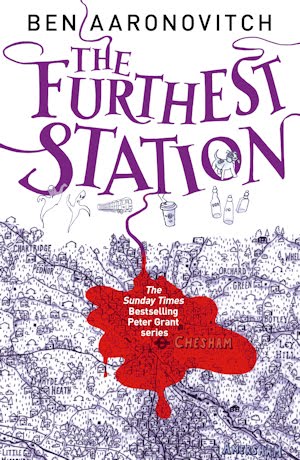Urban Fantasy(1), like horror with which it shares many tropes, often uses its supernatural elements to express both fear and fascination with the urban demi-monde. Or more precisely what looks like the demi-monde from the safe distance of the suburbs. Thus supernatural creatures can serve as allegories (or metaphors) for a great many 'issues' from race to poverty to crime and drug abuse.
But while there's excitement there is always and undercurrent of fear, that society has either broken down or has become, in itself, the enemy of the indivudual. Thus the big city can become literally demonised, not a place of families and communities but a landscape overrun by predators both singularly and in packs.
Interestingly this debilitating fear of the 'urban', for me, came across strongest in Phil Rickman's brilliant Remains of an Altar. In Rickman's work the supernatural grows out of the bones of the country and so, as a reversal, the fear and loathing of the urban becomes explicitly part of the mundane. Rickman's villain says, as justification for his actions; 'The cities are a lost cause... Reinfecting themselves on their own sewage.' And while his actions are condemned by the novel's protagonists his analysis is not. Us urbanites, and our children, are an infection that the countryside must resist with all its might.
The threat to the countryside is seen as completely external as one of the protagonist's friends says 'One day... I think we may be pushed just slightly too far.' The villains are an uncaring government, Brussels bureaucrats and ignorant townies who have no knowledge or interest in the true history of their own country. '...fight for our traditions,' says another character. 'And we're branded criminals.' A fate that almost befalls another character as the novel reaches its climax.
Now I think I should say here that Phil Rickman does not share this simplistic view but to describe how he explores the nuances and subtleties of town vs country would give away too much of the plot. You're just going to have to buy the book and read it yourself.
(1) I really should use the more accurate term 'contemporary fantasy' but it always strikes me as curiously bloodless term for what is a rich bouillabaisse of a sub-genre.















